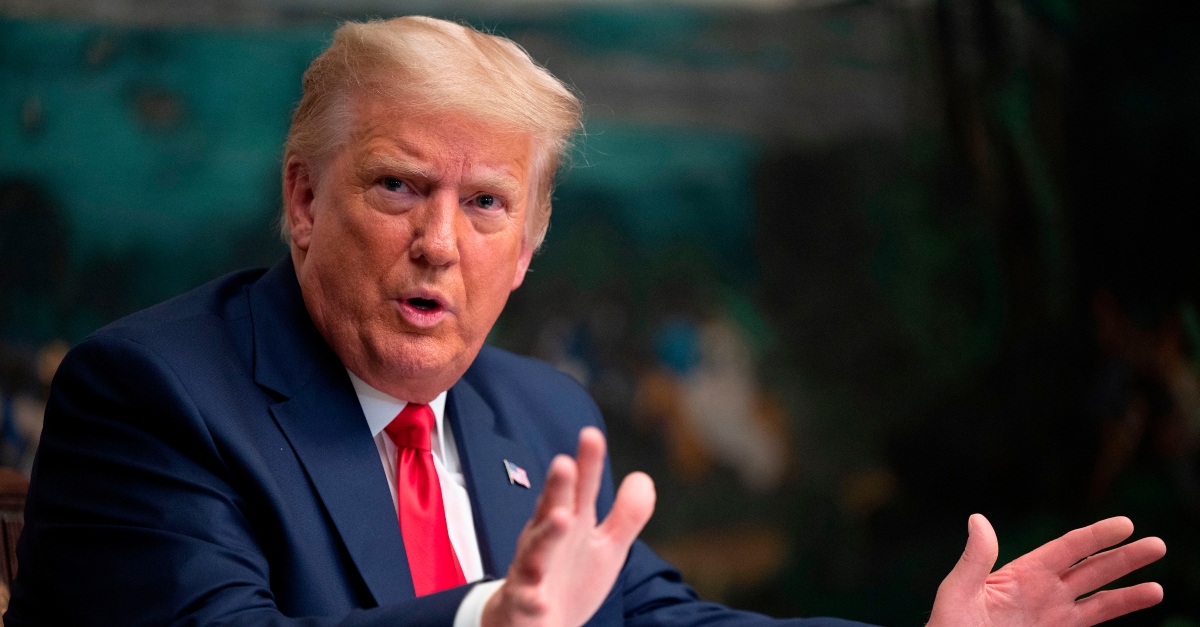
The Facebook Oversight Board on Wednesday upheld the decision to suspend Donald Trump from accessing the platform, reasoning that the former president’s posts praising his supporters after the storming of the U.S. Capitol on Jan. 6 violated Facebook’s community standards and guidelines in a “severe” way. The Board’s long awaited decision, however, also rebuked Facebook for failing to adhere to a standardized set of rules and procedures in imposing an “arbitrary” and “indefinite” suspension, directing the company to levy a “necessary and proportionate” penalty within six months.
The Oversight Board, sometimes referred to as “Facebook’s Supreme Court,” was created and is funded by the company to act as a neutral third-party arbiter of the platform’s decisions concerning the moderation of content. Its stated purpose is to “promote free expression by making principled, independent decisions” about what is and is not permissible on the site. Its decisions are binding and must be implemented provided the action is not illegal.
Facebook on Jan. 7 was the first major social media site to suspend Trump for his role in inciting and exacerbating the Capitol siege. According to the Board, that initial decision was warranted, specifically citing to two posts that explicitly praised those who attempted to prevent Congress from certifying the Electoral College votes.
In the first, Trump posted a video in which he spoke directly to his supporters, most of whom supported him and his false election fraud claims, telling them the election was “stolen from us,” and saying, “we love you” and “you’re very special.”
In the second post, Trump wrote, “These are the things and events that happen when a sacred landslide election victory is so unceremoniously viciously stripped away from great patriots who have been badly unfairly treated for so long.”
Both posts were quickly removed. The next day, the former president, who had more than 35 million followers, was suspended from the site “indefinitely and for at least the next two weeks” before the case was officially referred to the Board for review.
“The Board found that, in maintaining an unfounded narrative of electoral fraud and persistent calls to action, Mr. Trump created an environment where a serious risk of violence was possible. At the time of Mr. Trump’s posts, there was a clear, immediate risk of harm and his words of support for those involved in the riots legitimized their violent actions,” the decision stated.
“The user praised and supported people involved in a continuing riot where people died, lawmakers were put at serious risk of harm, and a key democratic process was disrupted. Moreover, at the time when these restrictions were extended on January 7, the situation was fluid and serious safety concerns remained. Given the circumstances, restricting Mr. Trump’s access to Facebook and Instagram past January 6 and 7 struck an appropriate balance in light of the continuing risk of violence and disruption.”
But the Board also noted that Facebook’s decision to implement an indefinite suspension was “not appropriate” without also providing criteria concerning the account’s reactivation.
“Facebook did not follow a clear published procedure in this case. Facebook’s normal account-level penalties for violations of its rules are to impose either a time-limited suspension or to permanently disable the user’s account,” the decision stated. “The Board finds that it is not permissible for Facebook to keep a user off the platform for an undefined period, with no criteria for when or whether the account will be restored.”
The company is required to reexamine Trump’s suspension and, within six months, decide on an appropriate penalty based on “the gravity of the violation and the prospect of future harm.”
[image via ANDREW CABALLERO-REYNOLDS_AFP via Getty Images]
Have a tip we should know? [email protected]